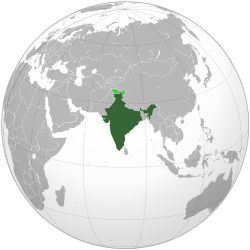OBJECTIVES OF AGGRESSIVE INDIAN FOREIGN POLICY
Mukesh Devrari
Former foreign secretary Rajiv Sikri delivered a lecture on ‘Rethinking India’s Foreign Policy’ in Central University of Jharkhand on 9th April 2014. It was organized by the Center for Human Rights and Conflict Management of the University in collaboration with an influential think tank of retired bureaucrats ‘Public Policy Division’.
Excerpts of his lecture based on memory.
21stcentury is different from the 20th century. India’s foreign policy needs readjustments. It is a globalized, interdependent and technology-driven world. Nationalism was the 19th-century idea. Now it’s a time to form a multi-ethnic society. The USA is still a number one power, now its power is declining in relative terms.
On the other hand, Japan is becoming more assertive. Europe is self-absorbed. They are trying to make sense of their unification. Asia will remain the centre of the geopolitical turbulence in the world in the present century. Worlds more than 50 % population stays in two thousand miles in and around Thailand. Terrorists, Islam, poverty and backwardness are mostly here. Asia is the place where the hope is, Asia is the place where the opportunities lie and Asia is the place where the fear is.
As a nation, India must keep itself at the centre for Asia. British Empire was depended on India without it they could not expand in Asia. Our interest lies from Hindukush to Iraq, Eden to Hormuz to Singapore, Suez Canal to Shanghai and Middle-East to the Far East. India is at the intersection of five arcs - an arc of growth and prosperity, an arc of instability and turbulence, an arc of energy, an arc of communication and an arc of uncertainty.
- Asia is the place where the hope is, Asia is the place where the opportunities lie and Asia is the place where the fear is.
- India must not be aggressive to be feared, but India must not be defensive, small and weak to be trusted and manipulated.
- Power is to be taken. It is never given.
India is considered a benign power. We don’t threaten anyone, but India may not remain that way if succeeded in growing 10 % per year for the next 10 years. Economics is at the heart of things. It is a crucial thing, perhaps the most important thing. While aspiring for economic prosperity, India must keep its defence preparedness up to mark. We must not be aggressive to be feared, but India must not be defensive, small and weak to be trusted and manipulated.
The USA may claim to help India but one must not forget that they want to do it to fulfil their own interests. Power is to be taken. It is never given. Strong India is not in favour of the USA as both countries have many divergences on plenty of issues. To have successful foreign policy India needs resolute and clear-headed leadership which must take steps to have public support for its diplomacy. There must be many stakeholders in diplomatic efforts.
Pakistan should be dealt with a stick if it harms India. Subsequent political executive in India favoured good relations with Pakistan and ignored sound bureaucratic advice of punishing Pakistan after it used proxies to attack Mumbai in 2008 and Indian parliament in 2003. During the Kandahar plane hijacking in 1999 diplomats could never give such advice to contemporary BJP government to release the terrorist in return of the passengers. That decision was perhaps taken by Jaswant Singh and others in the government.
While answering questions posed by students of the Central University of Jharkhand Former Foreign Secretary Sikri admitted that India had some covert assets in Pakistan in the nineties but the Prime Minister Indra Kumar Gujral took a considerate decision to dismantle them. Many things go on in the government. It is better if they remain behind the curtain, but he did not forget to add, “Running covert operations was not my job. I practised the art and craft of diplomacy for 36 years.”
end.
end.




Comments
Post a Comment